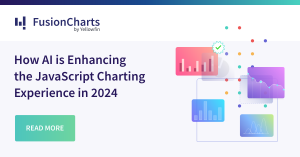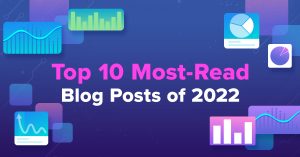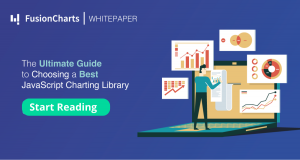The JavaScript Developer is a series of interviews with JS developers where they share their stories, inspirations and life lessons. This is the third part of the series.
 Irene Ros is an open source JavaScript developer with a focus on creating engaging, informative and interactive data-driven interfaces and visualizations. She worked for a number of years at IBM, the highlight of her experience there being the work at the Visual Communication Lab at IBM research. Today, Ros is the Data Visualization Practice Lead at Bocoup, a Boston-based open web technology company.
Here are the excerpts from the interview:
Irene Ros is an open source JavaScript developer with a focus on creating engaging, informative and interactive data-driven interfaces and visualizations. She worked for a number of years at IBM, the highlight of her experience there being the work at the Visual Communication Lab at IBM research. Today, Ros is the Data Visualization Practice Lead at Bocoup, a Boston-based open web technology company.
Here are the excerpts from the interview:
 Irene Ros is an open source JavaScript developer with a focus on creating engaging, informative and interactive data-driven interfaces and visualizations. She worked for a number of years at IBM, the highlight of her experience there being the work at the Visual Communication Lab at IBM research. Today, Ros is the Data Visualization Practice Lead at Bocoup, a Boston-based open web technology company.
Here are the excerpts from the interview:
Irene Ros is an open source JavaScript developer with a focus on creating engaging, informative and interactive data-driven interfaces and visualizations. She worked for a number of years at IBM, the highlight of her experience there being the work at the Visual Communication Lab at IBM research. Today, Ros is the Data Visualization Practice Lead at Bocoup, a Boston-based open web technology company.
Here are the excerpts from the interview:
Table of Contents
Tell us something about yourself
I have been a programmer for about 20 years now. I remember learning Basic when I got my first computer at the age of 9 and I never really looked back. Granted, I can’t say I made anything useful back then, but I fell in love with the ability to make computers do things with a few instructions.A line or two about the current project you are working on.
At Bocoup, I am the Data Visualization Practice Lead, working with our clients, engineers & community to continue pushing the boundaries of data visualization on the open web. This translates into having many projects at the same time – I am already thinking about our next OpenVis Conf 2015, several community projects that I run: MobileVis, Miso Project and Blocksplorer , as well as working with my fellow engineers and clients to build excellent data visualization stories and interfaces.What made you choose programming as a profession?
I’ve always really enjoyed math and science as a child, and computing seemed like the applied way to use those skills. I was thankful to be in an educational system that recognized such preferences early on and had wonderful supporting structures to enable me. Right now I feel like engineering is an open door to a variety of fields.Tell us something about the first project you worked on: what was it, how you went about figuring it out, the obstacles you faced, the outcome, etc.
Wow it’s been so long, I can’t really remember the first. One of my early big college projects involved figuring out a large open source portal system with the goal of adding real time chat to it. This was probably close to 10 years ago, so it was kind of a crazy idea. That’s when I learned the importance of well documented code and open source communities. Not surprisingly I ended up at Bocoup, where writing good open source software is one of our highest priorities.You have worked on several data visualization projects. How and why do you think JavaScript as a language helped in these projects?
JavaScript allows me to very quickly prototype visualizations and be able to share them with lots of other folks on the web. There are many libraries today that are changing the way we create data viz on the web, and I’m thrilled to be working in an environment that offers so much.Two most important data visualization tips or best practices you want to share with our readers.
Know your data – 95% of data visualization work is data crunching. Learn enough statistical methods to make sure you’re being honest with your audience and making the right conclusions. Learn your visualization methods – there are so many ways to visualize data and each is best applicable in certain situations. Learn when and how to look at various data.What would be top 3 resources that you would recommend beginners-level JavaScript programmers to learn advanced stuff about JavaScript?
- MDN – read the docs. They are great.
- Eloquent JavaScript – great beginner book.
- Your Own Project – pick something you want to build, and build it! Try different libraries and frameworks.


